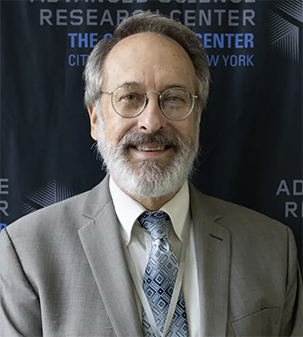In the News
GEOGRAPHY AWARENESS WEEK PRESENTATION
Tuesday, November 19, 2024
2:30 PM - 4:00 PM
1022 HN (Hybrid)

Food-Energy-Water Systems: An Example of a Geographic Perspective Can Guide Climate Resilience and Sustainable Development in the 21st Century
Speaker: Charles J. Vörösmarty1,2
1Director, Environmental Sciences Initiative, Advanced Science Research Center, Graduate Center, City University of New York, New York, NY
2Professor, Department of Geography and Environmental Science, Hunter College, New York, NY
ABSTRACT. Climate change, magnified climate extremes, and society’s response to these geophysical challenges will ultimately define the long-term performance of local, regional, national, and global economies. Optimally managing food-energy-water systems (FEWS) will be a major focal point that shapes future economic well-being, by way of our decisions associated with this nexus. The decision space necessarily involves tradeoffs regarding the environment, infrastructure, social justice, and national security. The interactions are complex and are anticipated to complicate both the identification of FEWS sensitivities and the subsequent design of FEWS adaptation measures. Decisions made today are likely to create decade-to-century legacy effects, making it critical to assemble a comprehensive view of how different FEWS systems are configured and interact, and how they can respond to changes in a manner that is both resilient and sustainable. These issues constitute a quintessential interdisciplinary—and geospatial—research challenge and require a well-structured science agenda and supportive information services for implementing key findings that governments and other stakeholder entities can readily adopt. Policy pathways should integrate basic research findings, use-inspired applications, models, real-time information systems, and decision support systems. In addition, stakeholder engagement will be essential to communicate the benefits and results of these approaches and to engage appropriate groups in their implementation. By way of a brief synthesis of 21 nexus papers published recently as a special issue in Frontiers in Environmental Science, this discussion will highlight how geographical perspectives are absolutely essential to both the research and policy requirements of achieving energy security.
SPEAKER BIO. Professor Vörösmarty’s research centers broadly on human-environment interactions. He has led interdisciplinary study teams using earth system models to assess the impact of water resource management worldwide and how they generate downstream coastal zone risks; strategic U.S. water-food-energy risks; and global threats to human water security and aquatic biodiversity. He has served in leadership positions supporting several national and international science consortia, including as co-chair of the Global Water System Project, as an Arctic research commissioner (appointed by Presidents Bush and Obama), and chair of the National Research Council’s Committee on Hydrologic Science. Vörösmarty led a team of scientists that provided advice on sustainable infrastructure investments to the United Nation’s High-Level Panel on Water and delivered a briefing during the U.N. General Assembly in early 2023. He is currently working with the historic Roosevelt House at Hunter College to create a sustainability science-to-policy forum series with the foreign diplomatic community stationed in New York City. He now serves as a lead scientist on the international NASA-GLOBE citizen education effort.
Light refreshments will be served.
RSVP Required: https://us02web.zoom.us/meeting/register/tZIsd-muqTMoH9BnY28C_NuVfF6wzKHcou7N

